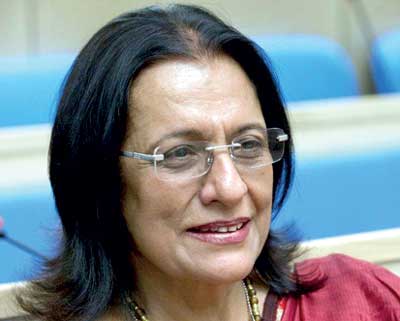Tuesday Feb 17, 2026
Tuesday Feb 17, 2026
Thursday, 9 March 2017 00:00 - - {{hitsCtrl.values.hits}}
By Dr. Poonam Khetrapal Singh
Birth defects affect approximately one in 33 infants and result in around 3.2 million birth defect-related disabilities across the world annually. In the South-East Asia Region, each year birth defects are responsible for an estimated 90 000 newborn deaths.
When not fatal, birth defects can result in long-term disability, impacting individuals, families, health systems and societies. The most common birth defects are heart defects, neural tube defects, and Down’s syndrome, with 94% of severe cases occurring in middle- and low-resource settings.
Birth defects may be caused by a genetic, nutritional, infectious or environmental factor. Though it is often difficult to identify the exact cause of a birth defect, many of them can be prevented. Doing so means undertaking concerted and multisectoral action aimed at alleviating the nutritional, environmental and disease hazards pregnant women face.
Women’s access to adequate nutrition, including folic acid and iodine, for example, must be guaranteed both pre and post conception through supplementation or food fortification. The enjoyment of an environment free of harmful chemicals, too, should be assured. And vaccination coverage that can protect pregnant women and their unborn babies from defect-causing diseases such as rubella must be universal.
Of vital importance for birth defect prevention and control is ensuring access for all expectant mothers to high-quality, cost-effective pre-conception and antenatal services. These services will ensure that women are counselled to meet their nutritional needs before and during their pregnancy, at the same time as avoiding tobacco and alcohol use. And they will also help detect birth defects early and manage defect-related complications. Progress is being made. Regional and national networks of hospitals have been established to undertake birth defect surveillance to better understand occurrence and distribution. Region-wide efforts to control rubella – which affects an estimated 50,000 births in the region annually –are being pursued via mass immunisation campaigns and expanded routine coverage, with nine of the region’s 11 countries now including rubella in routine immunisation schedules. And the reach and quality of health systems are being scaled up as part of the pursuit of universal health coverage and the Sustainable Development Goal of ensuring health and wellbeing for all at all ages. This includes integrating evidence-based interventions with existing health and nutrition programmes.
On World Birth Defects Day, WHO calls for a healthier future for newborns and their mothers across South-East Asia. Let us commit ourselves, our communities and our countries to realising this goal.
(The writer is WHO Regional Director for South-East Asia)